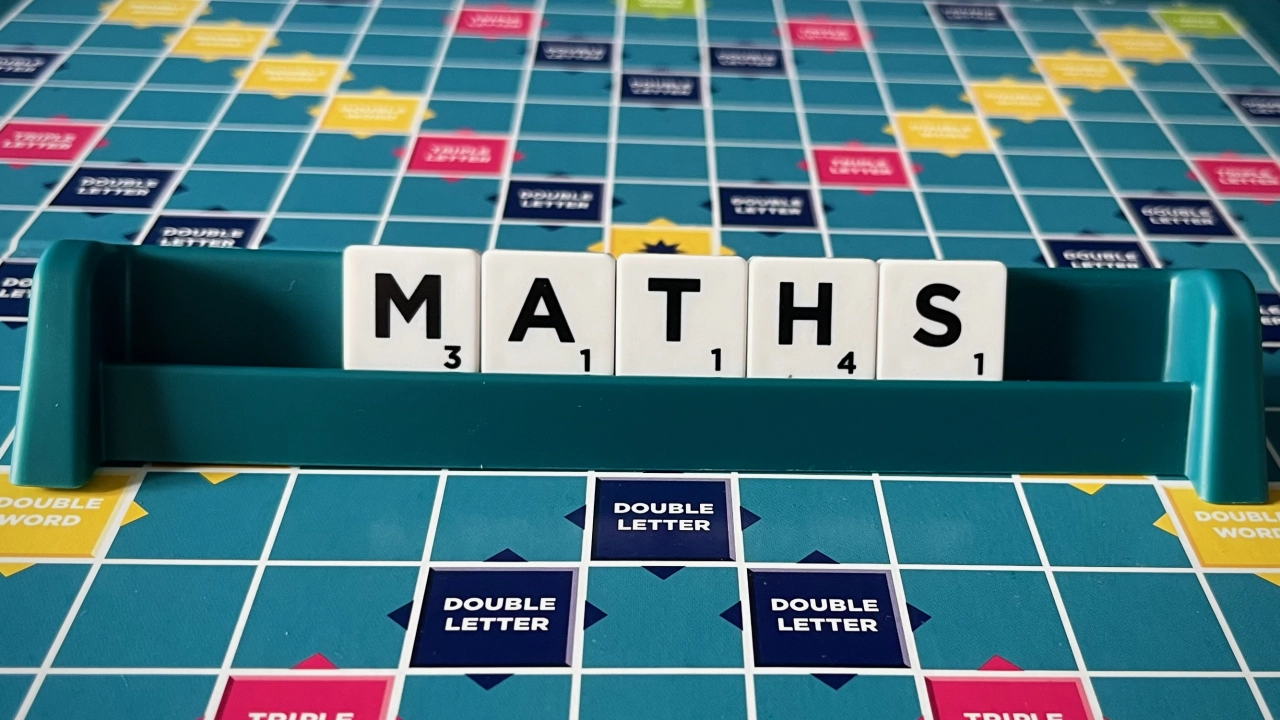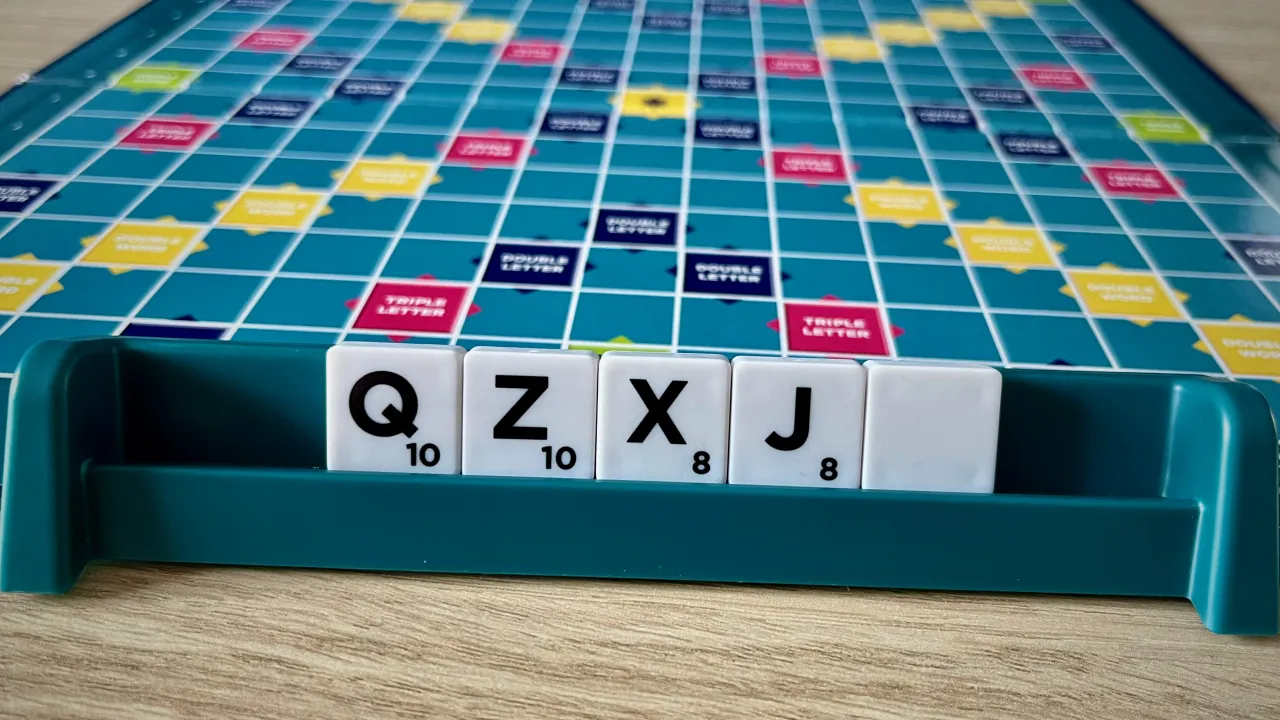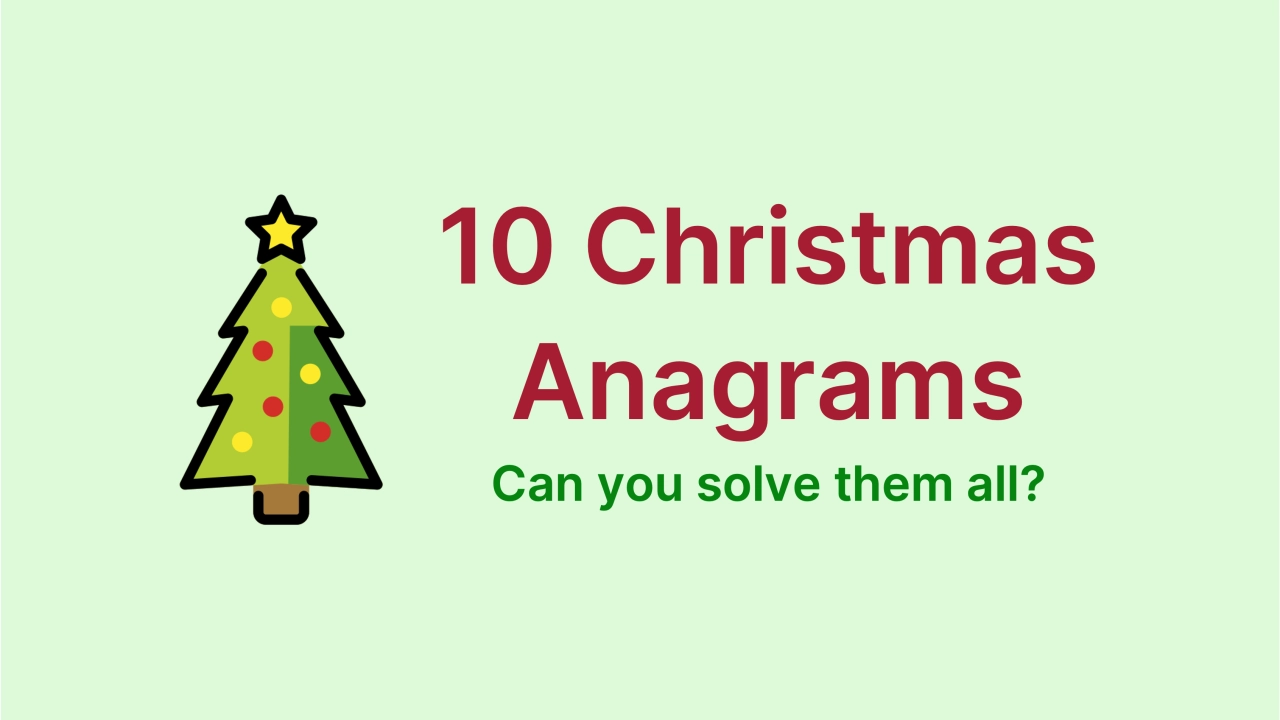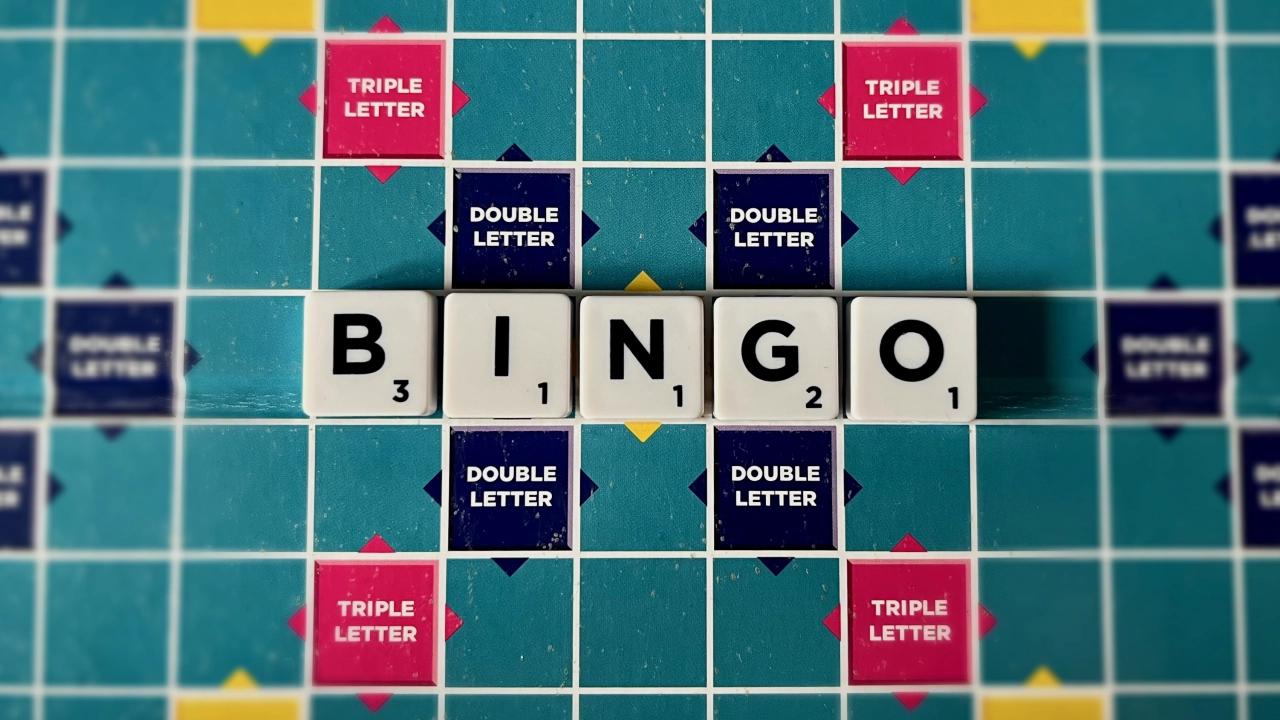Scrabble is traditionally a game of words and letters. But how important is maths for those wishing to become great Scrabble players? Find out more below.
In this article
- Where Maths Is Needed In Scrabble
- Probability In Scrabble
- Why Maths Is Important In Scrabble
- What If I’m Bad At Maths?
- Summary
Where Maths Is Needed In Scrabble
Despite Scrabble primarily being a word game, some areas do require players to apply some mathematical abilities.
Letter and Word Scoring
As you may already know, each letter in Scrabble is assigned a points value. The rarer the letter typically the more points it’s worth. You can find out how many points each letter is worth in the bottom right corner of each tile or in the game rules.
As you should also know, the aim of Scrabble is to score the most points. Points are calculated from the words you play by adding up each of the individual letter’s values.
This means to create strong scoring words, you at a minimum need to be able to do basic addition to get started at Scrabble.
Bonus Squares
Scrabble bonus squares are the special spots on the board that can double or triple a letter or word value.
This adds additional complexity to scoring, as it’s now no longer as easy as adding up each tile’s value.
Consequently, basic multiplication is also a requirement for players. Good knowledge of the two and three-times tables will be especially useful.
Expert tip: if a word is played across both a letter and word multiplier square. Always start by calculating the letter multiplier first, then the word multiplier afterwards. This ensures correct scoring by getting the order of operations correct.
Keeping The Game Score
Additionally, once the word has been scored, it now time to keep track of the overall game score. This too relies on addition to sum up each player’s score as the game progresses.
I’d recommend keeping some kind of score sheet for this task where you can input all players’ names and their scores for each turn of the game.
Expert tip: one mistake I see players make is forgetting to score words they got through “hooking.” This refers to creating more than one valid word per turn by extending off existing letters on the board. Always make sure to double-check for hooks when scoring so as not to forget them.
Probability In Scrabble
Another area of mathematics which is beneficial for Scrabble players is probability. Specifically the probability of drawing specific letter tiles from the bag throughout each stage of the game.
The quantity of each letter tile is not equally distributed, as higher-scoring tiles are less frequent, whereas low-scoring letters and vowels are more frequent. This means the chance of drawing a specific tile out of the bag depends on how many of them exist in a traditional game.
Below is the tile distribution at the start of a game:
- 12: E
- 9: A, I
- 8: O
- 6: N, R, T
- 4: D, L, S, U
- 3: G
- 2: B, C, F, H, M, P, V, W, Y, Blank
- 1: J, K, Q, X, Z
Furthermore, as the game progresses keeping tabs on what tiles have been played becomes important. This is because the probability of drawing a tile is forever changing throughout the game.
Players who do well will often adjust their strategy based on what they know is left to be drawn. For example, if the end game is approaching and few vowels are left to draw, a player might choose to ration their own vowels accordingly.
Overall, probably is not a necessity in Scrabble, but it will help beneficially shape your game strategy and tactics.
Why Maths Is Important In Scrabble
Now I’ve covered what maths is required and helpful for Scrabble players. Let’s discuss why it’s important.
Firstly, Scrabble is a scored game. By scored game, I mean the overall point of the game is to win by scoring the most points. Therefore, poor maths in the scoring process could skew the outcome of the game.
This may not be as important to those playing casually. But if your game is in any manner competitive it’s essential to get the maths right.
Secondly, maths (to some extent) will underpin your Scrabble strategy. From choosing the highest-scoring words, to placing tiles in the best location for multipliers, and knowing the probability of letters.
A good understanding of maths concepts will likely mean a higher score. So, don’t think Scrabble is only about words and letters, as there is much more to it than that.
What If I’m Bad At Maths?
If you’re not the strongest at maths, or simply just don’t like it, don’t fear as there is plenty you can do to get around this.
Here are some of my tips for those of you in this situation:
- For addition and scoring, use a calculator. Something as simple as a calculator removes the need to add together points and work out multipliers.
- Use pen and paper. This can be handy for rough workings out for those who cannot do it in their head and also for keeping the score of the overall game.
- Turn to online resources. Many websites like this one feature calculators and score sheets designed specifically for Scrabble. For example, our dictionary checker automatically scores words for you.
- Ask for help from an opponent. It’s always a possibility your opponent is a maths whiz who can do all the scoring with no problem.
At the end of the day, if you really hate maths and want to enjoy Scrabble without it, go for it! Scrabble can still be played for the word element alone without keeping the game score.
Also, keep in mind Scrabble is a great way to improve your maths skills. It can be a good exercise for both kids and adults to gain practice in a fun environment.
Summary
While Scrabble will predominantly remain a word game, you now have a bit more knowledge on how maths is useful within the game.
Feel free to apply some of the techniques I’ve discussed here in your next game and happy playing!
Did you find this article helpful?



